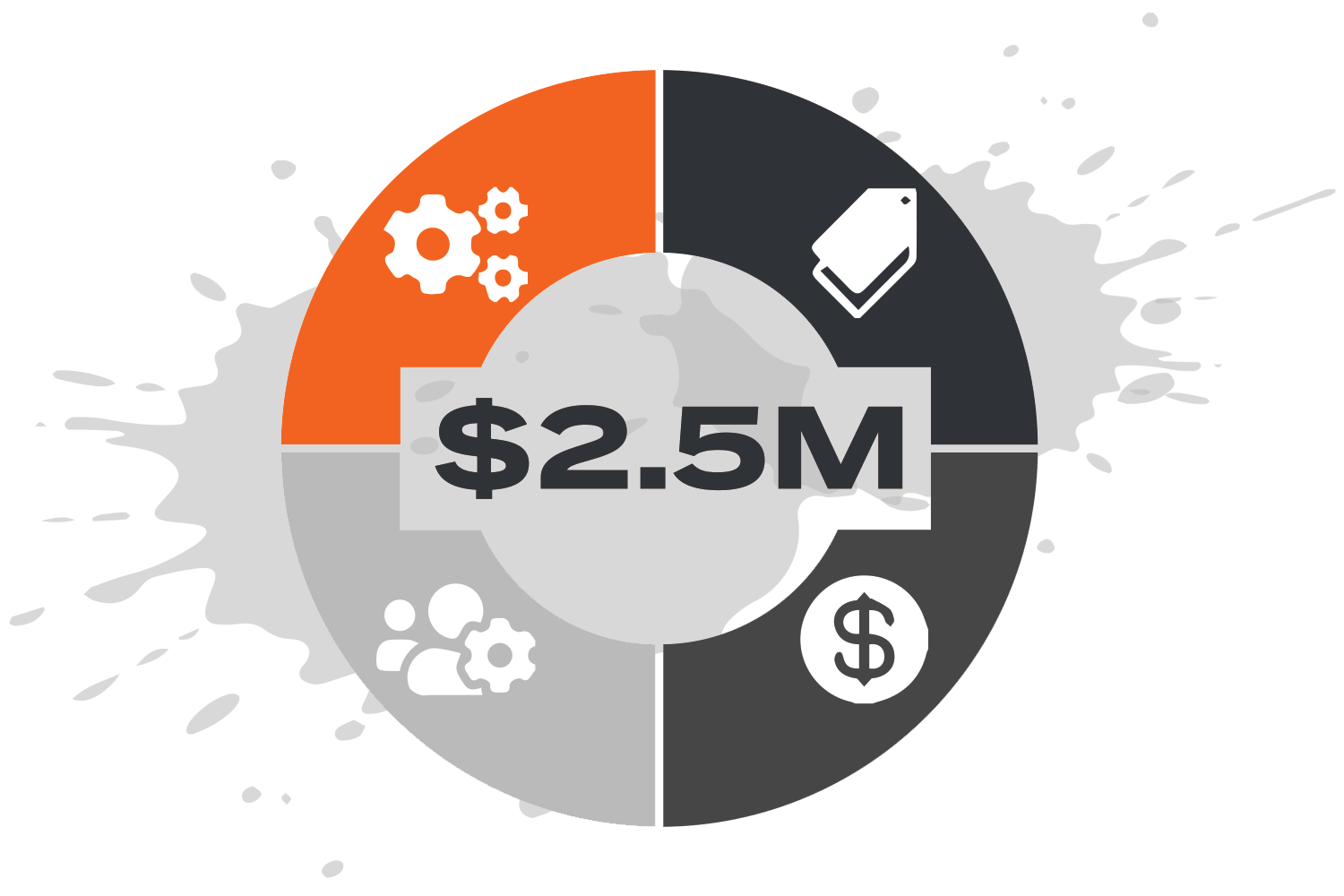“Drive it ‘til the wheels fall off” isn’t the safest decision. So when does it end?

Let’s assume you’ve built a profitable independent repair shop and it’s…well, it’s just not enough. I get it.
A convergence of your vision, hard work, increased demand for quality repair service, and a little bit of lucky timing has made you bona fide success story. The economic pain of COVID-19 is long in the rearview mirror, and you are absolutely crushing it, baby. You’re the man. A titan of industry, the envy of your neighbors. Hell, your customers are lucky to have you around. You think you’re ready to go to that fabled “next level” you’ve been reading about in a bazillion self-help business books.
I hate to rain on your parade, Sparky, but you probably ain’t the guy to get your shop there. At least not by yourself.
There aren’t any statistics on such things, but the Unwritten Encyclopedia of Business Truisms tells us that it’s the rare entrepreneur in any field who makes a successful transition to professional manager. That’s easy enough to understand. The skill set required to launch a business— the tireless intensity, the never-say-die dedication, the ability to think dynamically, to not just continually douse the fires that flare up in every startup but to actually thrive amidst those very flames— well, that’s what makes an entrepreneur.
In contrast, a professional manager will systematize the procurement of the gum and the twine, optimize the throughput of the gum/twine assembly, and grow the business steadily, predictably and profitably, while ensuring financiers’ and customers’ ride on the bandwagon is as smooth and stress-free as your granddad’s Crown Vic.
I call the latter guy (and I’m being gender-specific for expediency’s sake only here, ladies) the “$2.5 Million Dollar Man.” You may have founded your shop or grown it to its current revenue level. Given the size of the average small independent general auto repair shop in the USA, that would mean somewhere between a half-million to a million bucks in annual sales with three or four bays. The $2.5 Million Dollar Man is the guy who’s gonna get you to that lofty revenue number with at least twice that many bays and beyond. Reaching that revenue plateau at typical industry profit levels of between 20-28% for parts and 50-65% for labor, your shop could potentially throw off enough net free cash flow to reinvest at a torrid rate, pay down debt fast enough to make your banker worry, or maybe even buy that classic GTO you’ve been drooling over for years.
How do I know? Because I’m the first kind of guy—the entrepreneur who didn’t blink when you told me there was no way I could turn a stick of gum and a ball of twine into a business. Which means my management competence ranges from merely capable to occasionally awful.

When my precision machine shop (a business in many ways like an auto repair shop) really started taking off in the late ‘90s, I was smart enough to realize I needed the help of an experienced manager, but not smart enough to get the hell out of his way when he came onboard. The result was painful for both of us and for the employees who got caught in the daily crossfire.
Tony and I had the classic friction that inevitably results when a sales-oriented, strong-willed owner who’s accustomed to getting his way (that would be me) needs to coexist with his methodical, low-key, newly hired second-in-command.
Example:
Tony the New Manager: “Mike, we need to tell our customers that our lead times are longer than we’ve advertised in the past. We’re overbooked and falling behind on deliveries.”
Me: (melodramatically waving a packet of new inquiries in the air) “So you want me to tell our biggest customers that they should find another supplier??? Are you kidding me???
Tony: “No, that’s not what I’m saying. I’m suggesting that our estimates should give a date that’s more realistic, given our current backlog.”
Me: “Look, we got this far because of MY business philosophy, which is as follows: (making air quotes to emphasize that the next sound bite is sure to be profound and thus of enormous value to the fortunate listener) “If we sell enough stuff at profitable levels, everything else will take care of itself.”
Tony: (Thinks, but doesn’t say) “I can’t believe I left GE for this…”
Ultimately, Tony left me out of frustration.
That’s easy. Determine where your shop’s management weaknesses lie, because the guy or gal you’re going to hire needs to fill those voids. This little exercise requires a brutally honest evaluation that the typical entrepreneur will find painful. At the height of my machine shop’s success, I sometimes fell into the trap of thinking I was the expert in every room—regrettably, another common trait among entrepreneurs. The reality, however, was quite different. My forte was and is marketing and sales; I was only a passable financial manager and a marginally competent operations guy, limitations that would surface (as they often do in business) at the worst possible times.
Odds are that you’re strong on operations, a characteristic common among many shop owners who’ve spent most of their careers wrenching rather than managing. If so, perhaps you’re uncomfortable or weak in the sales and marketing duties that inevitably become more important to any growing company. And if you’re the kind of hands-on owner that “grew up in the business,” you may also lack the strategic management skills your shop will need to transition away from a business model totally dependent on people (i.e., your fellow techs doing their jobs) to one that’s also grounded in systems, and from reactive to proactive management tactics.

When you boil it down, there are four areas of management expertise you’ll need to have onboard to crack the $2.5 million sales ceiling: operations (staffing, parts sourcing and the like), marketing and sales (they’re not the same thing but in a small shop are often managed by the same person), finance (cash flow, commercial banking, payroll, etc.) and administration (the leadership rank that holds it all together). Your job is to decide what YOU bring to the table, and subsequently determine what holes need to be filled.
Are you a hard-driving, energetic, ambitious, charismatic boss? If so, you’re not likely to want to share the spotlight, much less the power, of being Top Dog. Your $2.5 Million Dollar Man is quietly competent but unmistakably tough and committed when the situation calls for it. He’s Scottie Pippen to your Michael Jordan.
On the other hand, if you’re the kind of owner or executive who’s all about the results, loves being in a bay and couldn’t care less whose name appears in the media when they rhapsodize about your shop’s amazing success, perhaps the right guy for you is a garrulous, razor-sharp marketing guy with a strong project management background. You’re Pete Townshend looking for Roger Daltrey.
There’s a whole world of sharp people out there eager for an opportunity to join your Dream Team and gain some props for vaulting a small auto repair shop from the ranks of relative obscurity to baller status. Hire a recruiter, list the position on a job board, spread the word to your friends, or all of the above.
Happy hunting!
The articles and other content contained on this site may contain links to third party websites. By clicking them, you consent to Dorman’s Website Use Agreement.
Participation in this forum is subject to Dorman’s Website Terms & Conditions. Please read our Comment Policy before commenting.